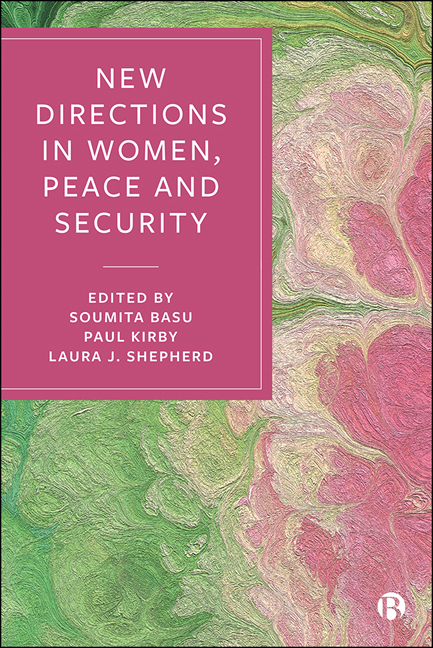6 - Between Protection and Participation: Affect, Countering Violent Extremism and the Possibility for Agency
Published online by Cambridge University Press: 12 March 2021
Summary
In 2007, the mandate of the United Nation's Special Rapporteur on human rights and counter-terrorism was amended, requiring the role to integrate a gender perspective (Scheinin, 2009). International human rights law additionally stipulated that gender equality should be respected in counter-terrorism, in both civil and political rights (Satterthwaite and Huckerby, 2013). Then in 2015, when a range of community-based responses to counter violent extremism (CVE) were already well-instituted in a variety of global contexts, and in addition to kinetic and military actions, UNSCR 2242 was adopted to recognize the need for a gendered approach within responses to violent extremism and CVE itself (UNSCR 2242, Preamble). Since 2015, critics have suggested both UNSCR 2242 and the concept of CVE have done no more than instrumentalize the Women Peace and Security (WPS) agenda, subordinating women's rights to the security needs of states and denying women agency.
This chapter addresses another side of this story. Using the UK counter-radicalization strategy Prevent as a case study, it explores the ways in which CVE both relies on, and reproduces, affective relationships in grassroots communities; and it reveals the ways in which women participating in Prevent have an ambiguously agential role. As such, CVE efforts are a site of women's leadership, as well as women's participation; such efforts can also act as a site of Muslim women's resistance. In particular, Prevent relies on communities in order to function, and within these communities, women's groups have both local knowledge and power. Additionally, Muslim women represented in this chapter describe choosing to engage in Prevent in ways that they believe advantage them both personally and collectively. The chapter suggests that recognition of the ways in which women own CVE, as well as the ways they are co-opted by it, presents a new direction for understandings of the WPS agenda in the counter-terrorism space.
Much of the existing work on gender and CVE practices has taken a critical perspective. The analysis presented here acknowledges those critiques, but seeks to look beyond them, to the stories women tell of their own relationships with countering violent extremism within their own community practice.
- Type
- Chapter
- Information
- New Directions in Women, Peace and Security , pp. 91 - 110Publisher: Bristol University PressPrint publication year: 2020
- 1
- Cited by

